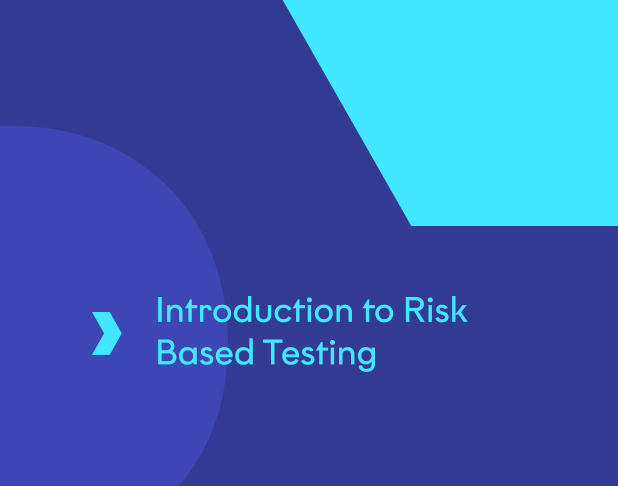The Introduction to Risk Based Testing course introduces the key concepts behind risk management and how they should be applied to software testing. You’ll cover the three stages of risk: identification, analysis, and mitigation, enhancing your ability to deliver high-quality software solutions that are both robust and efficient
15% off eLearning, up to 20% off live virtual classroom - use code: EARLY2504USA
Introduction to Risk Based Testing
Select your learning method:
Please complete the form to ensure your quote is accurate and we will contact you soon.

Mitigate risks and deliver higher quality software with this course
Gain an understanding of risk-based testing principles and techniques for identifying, assessing and prioritising risks within software development projects. These skills will enable you to develop more effective and efficient testing processes.
By the end of the course, you should understand:
- The role of risk management in software development and testing
- The three stages in risk management
- How risk management is used for individual component testing
- How risk management is used throughout a software project
What you'll learn
Risk plays a pivotal role in managing and scheduling testing within software projects. This course delves into the principles of risk management and how these can be applied at both the individual component level and across entire projects.
Risk in IT, project management and testing
Examine the role of risk in IT, project management and software testing. Explore how uncertainties can arise across technical systems, workflows, and development cycles, as well as their potential to impact project outcomes. With this understanding, you’ll be able to anticipate challenges and incorporate risk considerations into your test planning and execution strategies.
The three stages of risk management
A core focus of the course is the three stages of risk management: identification, analysis, and mitigation. You’ll learn how to identify potential risks that could affect testing outcomes, analyse their severity and likelihood, and develop actionable plans to mitigate them. This structured approach ensures that testing efforts are strategically aligned to address the most critical risks, optimising time and resources.
Risk management techniques
The course introduces a series of practical risk management techniques, including methods for prioritising testing tasks, using risk metrics to guide decision making, and implementing mitigation strategies effectively. By mastering these skills, you’ll be able to create testing frameworks that adapt to changing project demands and deliver consistent, high-quality results.
- Introduction to Risk Based Testing training, including accompanying course materials
FAQs
With our Introduction to Risk Based Testing course, you’ll gain insights into proven risk management techniques and develop a practical approach to handling risks within your software development projects.
How does risk management improve software development and testing?
Risk management improves software development and testing by enabling teams to identify, evaluate, and address potential issues before they escalate. By focusing on risks, developers and testers can prioritise their efforts on high-impact areas, ensuring critical functionalities are thoroughly tested and any vulnerabilities are mitigated early in the process.
Are there any prerequisites for the Introduction to Risk Based Testing course?
There are no formal prerequisites for this course, however prior experience working on IT projects would be beneficial. Whether this is as a tester, or in a development or management role.
How is this course delivered?
The Introduction to Risk Based Testing course is available as live virtual classroom training. The two-day workshop will take place in an online classroom and is run by one of our expert trainers.
Find out more about our live virtual classroom study option.
What are the benefits of completing the Introduction to Risk Based Testing course?
There are several key benefits to completing this course for your professional growth and testing expertise. You’ll gain an understanding of how to identify, analyse and mitigate risks in software projects. Develop practical techniques to manage testing processes more effectively, improving resource allocation and decision making. These skills are highly valued in the industry and can help to advance your career and contribute to the success of software projects within your organisation.

“I’m very happy with the training delivered by ILX, and would definitely recommend them in the future.”

"Awesome teacher who made the content fun to learn and easy to retain. I thought the tutor was great. They were professional with great and interesting explanations, and they made learning the course content fun.”
learners